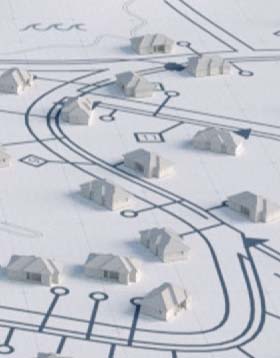The E/One Pressure Sewer System
We’ve perfected the most-rugged, longest-lasting sewer system in the industry. This economical and highly reliable central sewer system can be installed on any terrain - flat, wet, rocky, even on sites with dramatic elevation changes. The Extreme Series grinder pump, the heart of E/One’s sewer system, is the global leader in reliability and economy. This progressing cavity pump’s evolution reflects everything we’ve learned in over a half century as the originator and leader in pressure sewer system technology.
E/One Sewer Systems are the solution of choice to serve some of the world’s most extreme environments and most exacting communities, serving well over 2 million end users daily. Choose E/One to empower your next project with the lowest lifecycle cost while protecting environmental quality of life.
How Does The E/One Sewer System Work?
An E/One grinder pump appliance, installed at each property in the system, accepts gravity-fed wastewater from each building.
After being ground and pressurized, the wastewater slurry enters a sealed small-diameter pipe network installed just below the ground’s surface or frost line.
Following the natural contour of the land and because the output is pressurized, the wastewater can be transported horizontally over two miles or uphill 185 feet vertically.
Ultimately the pipe network may feed into a larger collection system, either an existing gravity system or pressure main, or even directly into a wastewater treatment plant.
Installations Around the World
Pionki, Poland
306 units
Sweden, Norway, Finland & Denmark
Over 100,000 units
Warwick, RI
2,625 units
Fairfield Glade, TN
3,000 units
Mountain Water, KY
2,500 units
South East Water, Victoria, Australia
9,000 units
Saratoga County, NY
2,200 units
Turawa, Poland
1,500 units
Mountain Water, KY
2,500 units
Sydney Water, New South Wales, Australia
6,000 units
What is the Difference Between a Gravity Sewer System and a Pressure Sewer System?
Gravity sewer systems often use large pipes that are installed in deep trenches and must follow a constant downslope. Low pressure sewer pipes may be as small as 2 inches in diameter and follow the contour of the land -- up and down hills, or across flat land at a constant depth. These small trenches can equal huge savings in installation costs.
Pressure sewer systems are often used when a gravity sewer system cannot be installed, or is too expensive to do so. The land may be very flat, rocky, hilly, or wet.



